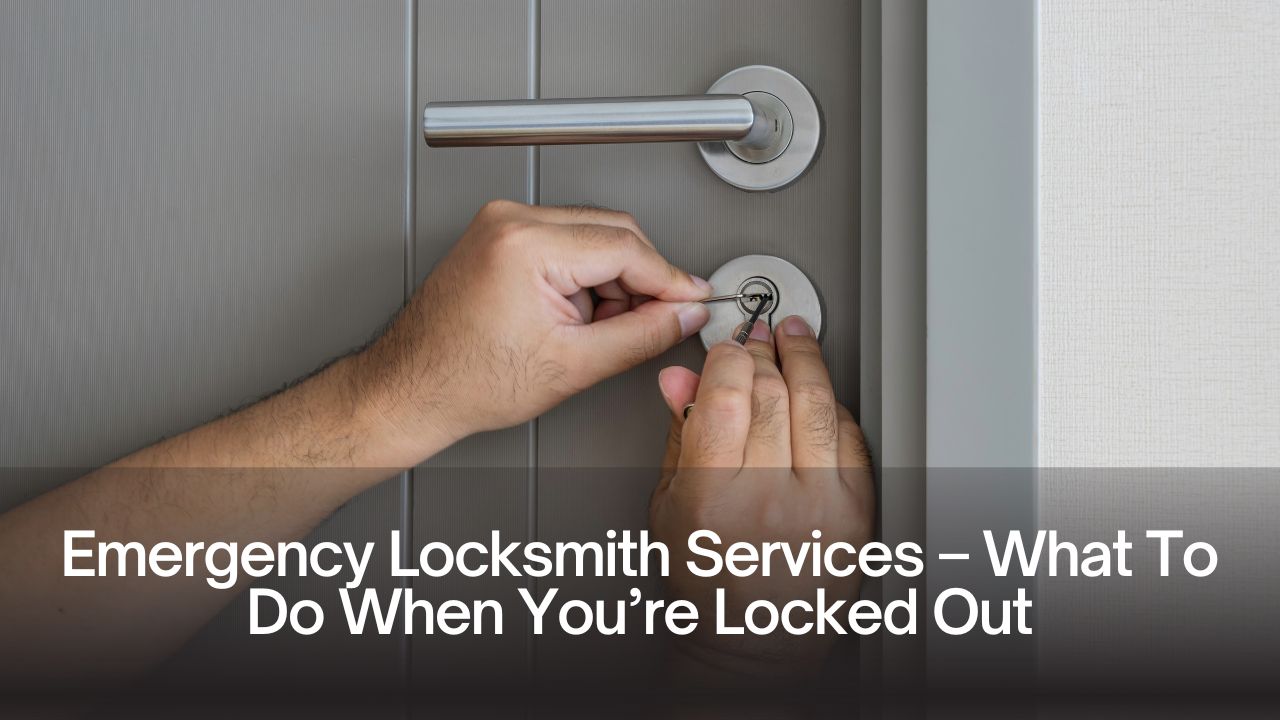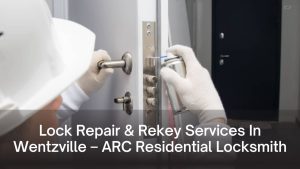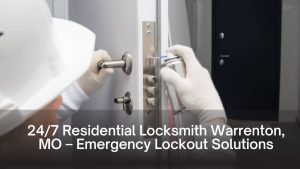Locksmith Services: It’s one of those stressful moments everyone dreads—you step out to grab the morning newspaper, and the door shuts behind you with your keys still inside.
Or maybe you finish shopping, load groceries into the trunk, and realize your car keys are locked inside. These situations bring an instant wave of panic, especially if it happens late at night or in an unfamiliar location.
The good news is that emergency locksmith services exist specifically for these kinds of crises. A professional locksmith can help you regain access to your home, car, or office quickly and safely, often within minutes of your call.
Beyond just unlocking doors, these experts provide additional security services, from repairing broken locks to rekeying after a break-in.
In this guide, we’ll cover everything you need to know about what to do when you’re locked out.
You’ll learn the step-by-step actions to take, how much emergency locksmith services typically cost, ways to choose a trustworthy provider, and tips for avoiding lockouts in the future. By the end, you’ll have a complete playbook for handling this stressful situation like a pro.
What Are Emergency Locksmith Services?
Emergency locksmith services are designed to provide round-the-clock help when people find themselves locked out or facing urgent lock problems. Unlike scheduled appointments, emergency services are available 24/7, including weekends and holidays.
Some common services provided include:
- Unlocking homes, cars, and offices without damaging locks.
- Rekeying or replacing locks after losing keys.
- Extracting broken keys from locks.
- Cutting and programming replacement keys.
- Repairing damaged locks after break-ins.
- Installing temporary or upgraded security solutions.
These services are not just about convenience—they’re often essential for safety and security. Imagine being stranded outside your house at midnight or stuck in a deserted parking lot. Quick access to a reliable locksmith can make all the difference.
Common Lockout Situations
Lockouts can happen to anyone, regardless of how careful you are. Here are the most frequent scenarios:
1. Home Lockouts
- Lost keys or misplaced sets.
- Broken keys stuck inside the lock.
- Malfunctioning electronic keypads or smart locks.
- Doors accidentally shutting with self-locking mechanisms.
2. Car Lockouts
- Keys locked inside the car or trunk.
- Keys lost during errands or travel.
- Broken or jammed ignition keys.
- Remote key fob malfunctions.
3. Office or Commercial Lockouts
- Lost master keys or misplaced access cards.
- Malfunctioning security systems.
- Broken locks or jammed doors.
- Staff accidentally locked out during off-hours.
These situations can range from mildly inconvenient to urgent emergencies—especially if children, pets, or valuables are trapped inside.
Step-by-Step Guide: What to Do When Locked Out
Finding yourself locked out is stressful, but panicking won’t help. Instead, follow these practical steps:
1. Stay Calm and Assess
Take a deep breath and check if you have another entry point, such as a back door or garage. In car lockouts, check all doors before calling for help.
2. Look for Spare Keys
Do you have a spare key hidden safely? Maybe a family member, roommate, or neighbor has one. This quick check could save you both time and money.
3. Avoid Risky DIY Methods
Don’t attempt to break windows or use makeshift tools like coat hangers. These often cause damage, result in costly repairs, or put your safety at risk.
4. Call an Emergency Locksmith
If no other option works, contact a licensed emergency locksmith. Many services advertise a 15–30 minute response time. Always confirm availability before waiting.
5. Verify Credentials
When the locksmith arrives, ask for identification and ensure the company is legitimate. Scams are common in this industry, so this step is crucial.
6. Keep Records
Save the locksmith’s business card and invoice. You may need the documentation for insurance or future services.
Locksmith Response Times and Costs
| Service Type | Average Response Time | Typical Cost (USD) | Notes |
|---|---|---|---|
| Home Lockout | 15–30 minutes | $70–$150 | After-hours fees may apply |
| Car Lockout | 20–40 minutes | $80–$180 | Key replacement costs more |
| Office Lockout | 30–60 minutes | $100–$250 | Commercial locks often complex |
| Rekeying Service | 30–60 minutes | $100–$200 | Essential if keys lost/stolen |
| Lock Replacement | 40–90 minutes | $120–$300 | High-security locks cost more |
| Key Fob Programming | 30–60 minutes | $150–$350 | For modern smart vehicles |
How to Choose a Reliable Emergency Locksmith
With so many locksmiths advertising online, it can be tricky to know who to trust. Here are some tips:
- Check Licensing and Certification – Confirm your locksmith is licensed and insured under state/local laws.
- Ask for Upfront Pricing – A reputable locksmith will provide a cost estimate before starting work.
- Look for 24/7 Availability – Emergencies don’t follow business hours; make sure the company offers true round-the-clock service.
- Read Online Reviews – Look for customer feedback on Google, Yelp, or local directories.
- Confirm Identification – Both company ID and personal identification should be available upon arrival.
For more safety guidance, visit the FTC’s guide on locksmiths (U.S. government site).
Extra Services Offered by Locksmiths
Emergency locksmiths often go beyond just opening doors. They can also:
- Install deadbolts and smart locks for better home security.
- Set up keyless entry systems for offices.
- Duplicate keys on the spot.
- Provide security assessments after break-ins.
- Offer automotive locksmith services, including transponder key programming.
These additional options make locksmiths a one-stop solution for both emergencies and long-term security upgrades.
Preventing Future Lockouts
While no one plans to be locked out, a few preventive steps can save you a lot of stress:
- Spare Keys: Keep one with a trusted friend, neighbor, or family member. Avoid hiding under doormats.
- Smart Locks: Upgrade to electronic or biometric locks that use codes or fingerprints instead of keys.
- Routine Maintenance: Lubricate locks and check batteries in smart systems to prevent sudden malfunctions.
- Organize Your Keys: Use key holders at home and never mix them loosely with other items.
- Emergency Contacts: Save a reliable locksmith’s number in your phone for quick access.
Real-World Example: Why Preparation Matters
Imagine Sarah, a working mom who returned home late one evening only to discover she left her keys at the office. Her children were waiting at a neighbor’s house, and she felt panicked.
Luckily, Sarah had researched locksmiths beforehand and saved a 24/7 provider’s number in her phone. Within 20 minutes, a certified locksmith arrived, unlocked her home without damage, and cut a spare key on the spot.
This scenario highlights why being proactive about lockout preparedness is just as important as knowing what to do in the moment.
Lockouts are frustrating, stressful, and often happen at the worst possible time. But by knowing your options and having a plan, you can turn a potential crisis into a minor inconvenience. Emergency locksmith services are fast, reliable, and available 24/7 to help you regain access to your home, car, or office.
The key takeaways? Stay calm, avoid damaging your property, call a licensed locksmith, and always verify their credentials. Just as importantly, take preventive steps like keeping spare keys and upgrading to smart locks. Preparation today can save you stress tomorrow.
Remember, a lockout doesn’t have to leave you stranded—it’s simply a temporary setback when you know the right steps to take.
FAQs
How fast can a locksmith reach me in an emergency?
Most locksmiths arrive within 15–40 minutes, though timing depends on your location, time of day, and availability.
Can locksmiths unlock modern cars with smart keys?
Yes. Automotive locksmiths use specialized tools and can program smart keys, key fobs, and transponder systems.
Is it cheaper to rekey locks instead of replacing them?
Yes. Rekeying changes the lock’s mechanism to fit a new key, costing less than a full replacement while maintaining security.




